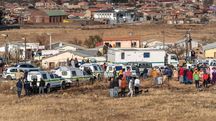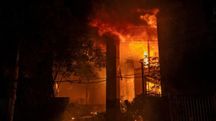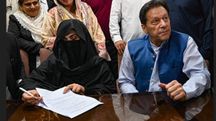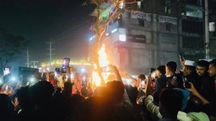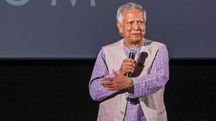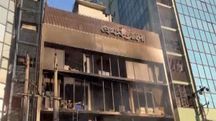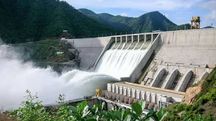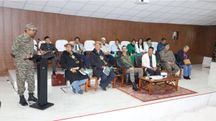Sri Lanka announces default on its Foreign debt; Crisis-hit
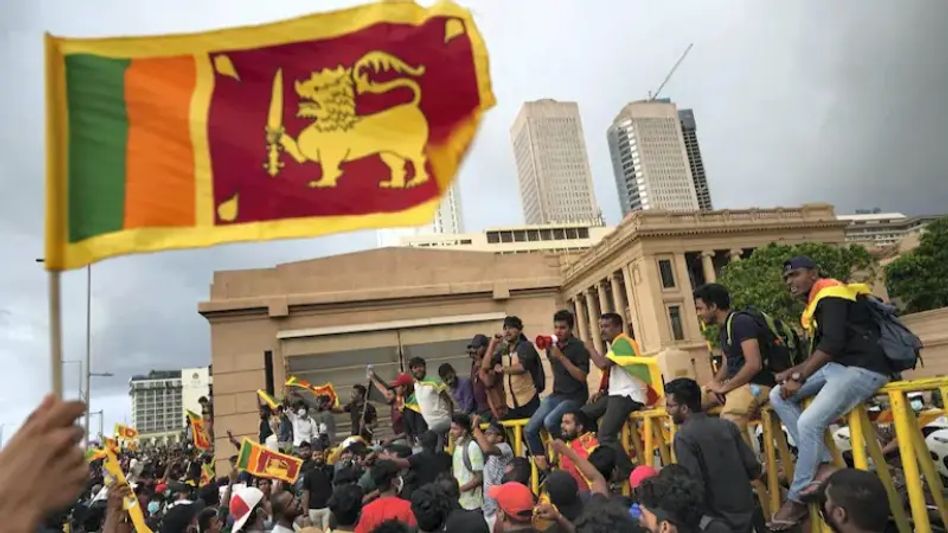 sri lanka crisis
sri lanka crisis
As the island nation grapples with its worst economic crisis in memory and growing rallies demanding the government's removal, Sri Lanka announced a default on its $51 billion foreign debt on Tuesday.
Acute food and fuel shortages, as well as long daily power outages, have wreaked havoc on the country's 22 million people, resulting in the country's most painful slump since independence in 1948.
The government has struggled to cover foreign debts, and Tuesday's decision comes ahead of talks with the International Monetary Fund (IMF) to avoid a more catastrophic hard default, in which Sri Lanka would totally default on its obligations.
"Sri Lanka will suspend repayments for an interim period pending an orderly restructuring," Treasury Secretary Mahinda Siriwardena told reporters.
Market borrowings in the form of international sovereign bonds (ISB) account for just under half of Sri Lanka's debt, including a $1 billion ISB that was due to mature on July 25.
China is Sri Lanka's largest bilateral lender, with around 10% of the country's public debt held by it, followed by Japan and India.
Since 2005, the government has taken out large loans from Beijing for infrastructure projects, many of which have turned into white elephants.
In 2017, Sri Lanka leased its vital Hambantota port to a Chinese corporation after it was unable to service a $1.4 billion debt owed to Beijing for its construction.
Western countries and India's neighbour, Pakistan, were concerned that the strategically positioned South Asian nation was sinking into a debt trap.
Chinese foreign ministry spokesman Zhao Lijian said Tuesday's default would not stop Beijing from lending support to Sri Lanka's beleaguered economy.
"China has always done its best in providing assistance to Sri Lanka's economic and social development. We will continue to do so in the future," he said.
Sri Lanka's economic crisis began with an inability to import essentials. Long queues were seen around the island each day to buy scarce supplies of petrol, gas and kerosene. The government imposed a wide import ban to conserve foreign currency reserves. But the resulting shortages have stoked public anger.
"It’s been depressing to be so frightened of the future and where it’s going," protester Vasi Samudra Devi told AFP at an anti-government rally in Colombo Monday.
"There are already people who are suffering... We are all here because we are being affected by the economic problems."
Security forces have fired tear gas and rubber bullets to disperse thousands of protesters. Sri Lanka's debt crisis has been exacerbated by mismanagement and years of accumulated borrowing.
Sri Lanka's finance ministry said Tuesday's default was "a last resort in order to prevent further deterioration of the republic's financial position".
Creditors were free to capitalise any interest payments due to them or opt for payback in Sri Lankan rupees, the ministry added.
The government is seeking around $3 billion in IMF support over the next three years to revive the economy, finance minister Ali Sabry told parliament on Friday.
Ministry officials told AFP last week the government was preparing a programme for sovereign bond holders and other creditors to take a haircut and avoid a hard default.
Sri Lanka had sought debt relief from India and China this year, but both countries instead offered more credit lines to buy commodities from them.
Estimates showed Sri Lanka needed $7 billion to service its debt load this year, against just $1.9 billion in reserves at the end of March.
Copyright©2025 Living Media India Limited. For reprint rights: Syndications Today
